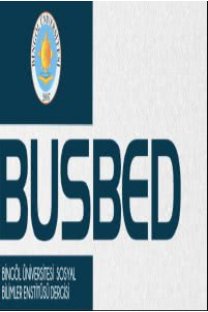PLATON’UN “DEVLET” VE “YASALAR” ESERLERİNDE HAKİKAT (ἈΛΉΘΕΙΑ) KAVRAMI VE BU KAVRAMIN EREK KÜLTÜRDEKİ YANSIMALARI
Bu çalışma Platon’un olgunluk dönemi eseri “Devlet” ve yaşlılık dönemine ait “Yasalar” eserindeki “hakikat (ἀλήθεια)” kavramı incelenmiş ve filozofun “hakikat” anlayışına açıklık getirilmeye çalışılmıştır. Ἀλήθεια kavramı, başta İlkçağ felsefesinde olmak üzere, tüm felsefe tarihinden günümüze kadar araştırılan ve tartışılan kavramlarından biri olmuştur. Platon’a göre hem tanrıların hem insanların temel amacı iyi olanı aramak, onu bulmak ve ona göre yaşamaktır. Bütün iyilerin başında hakikat gelir ve hakikate ulaşmak zor ve emek isteyen bir yoldur. Platon’un felsefe anlayışına göre tanrısal özellikler taşıyan ἀλήθεια, idealar dünyasının temel kavramlarından biridir ve insanlar ancak hakikati yansıtanı tam anlamıyla kavrayabilir. Platon, eserlerinde devleti ve yasaları varsayımsal nitelikte oluştururken, aynı şekilde varsayımlarını “hakikat” temelinde doğrulama amacındadır. Zira asıl amaç hakikate ulaşmaksa, “Devlet” ve “Yasalar” eserleri de hakikatin peşinden gidecektir. Diğer yandan çalışma dâhilinde ἀλήθεια kavramının çevirisinde, kaynak metindeki anlamın kaybolması vb. sorunlar irdelenmiştir.
THE CONCEPT OF TRUTH (ἈΛΉΘΕΙΑ) IN PLATO’S “REPUBLIC” AND “LAWS” AND THE REPERCUSSIONS OF THIS CONCEPT ON THE TARGET CULTURE
In this study we examined the concept of “truth (ἀλήθεια)” in “Republic”, which belongs to the mature period of Plato’s authorship and “Laws”, which belongs to his late period, and tried to clarify the philosopher’s understanding of “truth”. The concept of ἀλήθεια is one of the concepts that is examined and discussed through the whole history of philosophy and especially in the ancient philosophy. According to Plato, the main aim of human beings and gods is to search for the good, to find it and to live in accordance with it. The highest good is the truth and to achieve it one must walk through a hard and laboring way. In Plato’s philosophy ἀλήθεια that possess divine features, is one of the basic concepts of world of ideas and human beings can only comprehend totally what reflects the truth. While Plato construct the republic and the laws in a hypothetical fashion, he aims to justify his assumptions on the ground of truth, because if the main aim is to achieve the truth, he could not make an exception for “Republic” and “Laws”. Moreover, in this study we also tried to scrutinize some problems about the translation of the concept of ἀλήθεια like the loss of the original meaning in the source text.
